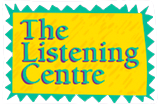Tuning the Ear of Those Who Can’t Learn
Some of the most rewarding moments in my career as an “ear tuner” come when I meet with, or hear from, young adults I helped ten or more years ago. After 20 years of clinical practice at The Listening Centre in Toronto, I find these rewards occur more and more frequently.
There is Henry, who successfully completed his studies in Mathematics and Computer Studies at The University of London. John now runs his own car trim and accessory business. Rita is now completing a Ph.D in Theology. These are just a few of those who have come to my attention in the past few years.
These young adults were once like many of the school age children we see every day at The Listening Centre. Some are barely making it through the grades, others are flunking year after year, and many of them have been placed in special education programs. A great majority of them have gone through a number of assessments and endured many hours a week of therapy and extra help. Some are on Ritalin. They may have been diagnosed as learning disabled, as having auditory processing problems, as dyslexic, or as ADD (attention deficit disorder) - a label that has become the household word of the nineties.
When these young adults first come to the Centre for an Initial Assessment, I explain to them and to their parents that a listening difficulty is at the root of their learning problem, and quickly clarify that this had nothing to do with their hearing. “The ear is fine, its ability to focus - or to tune in to sounds - is not.” The listening difficulty affects their attention span, their memory, and their ability to read, spell and write properly. It also accounts for their tendency to misinterpret messages and their difficulty in collecting and organizing their thoughts. “Information received with gaps and distortions is recorded and stored away this way. What remains at the end are bits and pieces that have little in common with the original information.”
I also frequently explain that listening has a lot to do with our level of energy and motivation. One of the main functions of the ear is to transmit to the brain the energy received from sounds. The ear acts as a dynamo which feeds the nervous system to maximize its efficiency. tiredness, headaches at the end of the school day, feelings of boredom and laziness, frustration, moodiness, “thin skin” at school , at home or with friends - all these characteristics may also be related to faulty listening.
To those children who have a hard time not only with their work, but also with sports or other activities that require motor functions and coordination, I explain that the ear is strongly involved in the control of our body movements and its positioning in space. Even the movements of the eyes when reading are affected by the ear. Their “listening of the body” may not be as focused as it should. I conclude by explaining that “ the engine is fi ne; it just needs a tune up.”
The Listening Centre provides this “tune up” through individual tailored programs of sound stimulation (music and voice) that are received via headphones and bone vibrators after modification through filtering. Most programs consist of two intensive phases of about 30 hours each (2 hours/day for 15 days) with about a month break in between.
The program consists of two parts: a “passive phase” to develop receptive listening skills during which children play, draw or paint and most adults rest and relax; and an “active phase” where voice exercises (humming, singing, or reading into a microphone) are introduced. A play room has also been specially designed to enable small children to move around while listening and to facilitate sensory and body integration. Upon completion of a program, progress is monitored for at least one year. Exercises and short listening training “boosts” may be recommended.
I was 18 when I started the program with the Tomatis Method. Like Henry, John and Rita, I had been tested many times and endured all kinds of therapies. Nevertheless, I had dropped out of school. I knew I was dyslexic but that didn’t help much. I also knew I was not stupid but that didn’t help either as I had no way to prove it. Two years after I finished the program, I was accepted into University. I decided to study psychology and to learn the techniques developed by Dr. Tomatis. My reasoning was simple: if it had helped me, it could help others - and Henry, John and Rita are among many who confirm that I was right.
Published in The Little Acorn, Toronto, 1998
© Paul Madaule, 1998
 Skip Navigation
Skip Navigation
